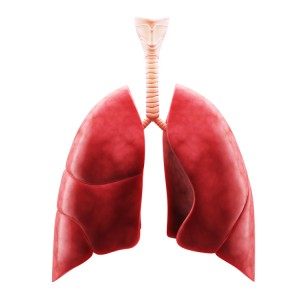Preventing Exacerbation in CF Patients Focus of Promising New Study

 An article published in BioMed Central’s Pulmonary Medicine journal provides evidence that the impaired immune system, a key feature in cystic fibrosis (CF), may lead to patients being deprived of necessary oxygen due to lung tissue destruction. The study, entitled “Hypoxia down-regulates expression of secretory leukocyte protease inhibitor in bronchial epithelial cells via TGF-β1,” used an experiment to understand the mechanisms that hypoxia has on the anti-microbial function of lung tissues cells. The findings have the potential to impact the direction of novel treatment modalities to target this mechanism.
An article published in BioMed Central’s Pulmonary Medicine journal provides evidence that the impaired immune system, a key feature in cystic fibrosis (CF), may lead to patients being deprived of necessary oxygen due to lung tissue destruction. The study, entitled “Hypoxia down-regulates expression of secretory leukocyte protease inhibitor in bronchial epithelial cells via TGF-β1,” used an experiment to understand the mechanisms that hypoxia has on the anti-microbial function of lung tissues cells. The findings have the potential to impact the direction of novel treatment modalities to target this mechanism.
Background Terminology:
- Hypoxia: A condition in which the body or a region of the body (lung tissue) is deprived of an adequate oxygen supply.
- Epithelial Cells: Cells that line the inside of your throat, intestines, blood vessels, and all your organs. They are a barrier between the inside and outside of your body and are often the first place that is attacked by viruses as they begin their invasion deeper into the body.
- Leukocyte, aka, white blood cell: A cellular component of the blood that defends the body against infection and disease by ingesting foreign materials and cellular debris, and by destroying infectious agents.
CF is a chronically progressive life-threatening disease caused by a genetic mutation that disrupts the body’s ability to hydrate and effectively clear mucus in the lungs and/or digestive tract. According to the CDC, in the US, approximately 1,000 new cases are diagnosed each year with more than 75% of those patients under the age of two. An estimated 30,000 children and adults in the US and 70,000 worldwide have the disease. Patients diagnosed with CF have a lifespan of approximately 30 years, with many patients living into their forties.
[adrotate group=”1″]
The genetic mutation that causes CF affects the normal functioning of the lungs and digestive system by creating abnormal amounts of very sticky mucus that covers the lungs, pancreas, and other important organs of the respiratory and digestive systems. This sticky mucus attracts foreign pathogens, such as viruses and bacteria, making patients more susceptible to infectious diseases (i.e. pneumonia). The high microbial burden causes inflammation of the lung tissue and a high likelihood of tissue destruction due to the frequency of infections.
About the Study:
To understand the immunologic mechanisms leading to this tissue destruction, Dr. Lisa Påhlman, Professor of Infectious Disease Medicine at Lund University in Sweden and her laboratory team designed an experiment using cultured lung epithelial cells and investigated the expression of a certain leukocyte inhibitor known as Secretory leukocyte protease inhibitor (SLPI) and other immunologic cells in the presence of normal and decreased oxygen environments (hypoxic). They did this by utilizing the following laboratory techniques:
- Reverse transcription polymerase chain reaction (RT-PCR): technique is commonly used in molecular biology to detect RNA expression. In this study, the technique was used to analyze the mRNA expression to understand whether SLPI is either down or up-regulated during hypoxic conditions.
- Enzyme-linked immunosorbent assay (ELISA): a test that uses antibodies and color change to identify a substance. In this study the technique was used to detect the presence of SLPI in culture.
The experimental results showed that in hypoxic conditions the production of SLPI in bronchial epithelial cells is decreased.
When discussing the importance of this finding, Dr. Påhlman, and her collaborators wrote, “The present study demonstrates that SLPI is down-regulated in the bronchial epithelium during hypoxia. These findings may help explain the pathogenesis of inflammatory lung diseases, and provide a potential target for the treatment and prevention of exacerbation in these patients.”







